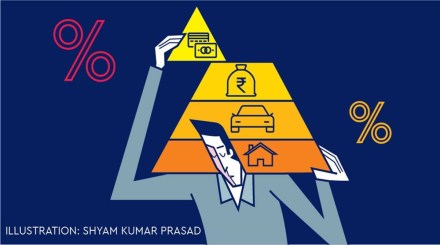We all have debts, but the situation gets slightly challenging when someone has multiple debts, and he fails to manage all of them as it is not always feasible to run several loans and keep a track of all payments without delay or default. That is why it makes sense to consolidate your debts and focus on just one single debt that can be managed and repaid on time.
One strategy that comes to help in these situation is debt consolidation. It refers to combining multiple debts into a single loan or repayment plan. This method aims to simplify the repayment process by merging various outstanding debts, such as credit card balances, personal loans, or other liabilities, into one manageable payment.
The new consolidated loan usually comes with a lower interest rate or longer repayment tenure, making it easier for individuals to handle their debt burden. Before opting for debt consolidation, however, consider these key factors:
Assessment of Total Debt
One of the most important factors while consolidating your debts is to evaluate the total outstanding debt, including interest rates, repayment terms, and any penalties or fees associated with the existing loans or debts.
Also Read: The Journey to Homeownership: From planning to the possession of your dream house
Credit Score and Eligibility
Your credit score is very important as it influences your interest rate on loans and various other factors that can make your loan cheaper or expensive. Check your credit score as it impacts eligibility and interest rates for the consolidated loan. Higher credit scores often lead to better loan terms.
Understand how debt consolidation might impact your credit score. Consolidation can initially lower the score but may improve it over time with regular payments.
Adhil Shetty, CEO, Bankbazaar.com, says, “A good credit score often qualifies you for lower interest rates on the consolidated loan. This results in reduced overall interest expenses, making repayment more affordable. Better credit scores may offer more favourable loan terms, such as longer repayment tenures or higher loan amounts, providing greater flexibility in managing your debt.”
Interest Rates and Fees
Sometimes additional charges can put a burden on your overall finances. So, it is better that you make sure the interest rate and additional fees are within manageable limits. Compare interest rates, processing fees, and other charges associated with the consolidation loan. Ensure that the new rate is lower than the average rate of the existing debts.
Loan Tenure and Repayment
Assess the repayment tenure and schedule of the consolidated loan. While longer tenures reduce monthly payments, they might increase the total interest paid over time.
Financial Discipline
Commit to disciplined financial habits to avoid accumulating further debt while repaying the consolidated loan. Budgeting and prudent spending play a crucial role in successful debt management.
Seek advice from experts to understand the implications and suitability of debt consolidation based on your financial situation.
Debt consolidation can be a practical solution for managing multiple debts, but it’s crucial to assess its feasibility and impact on your overall financial health before proceeding. Making an informed decision can lead to effective debt management and financial stability.
